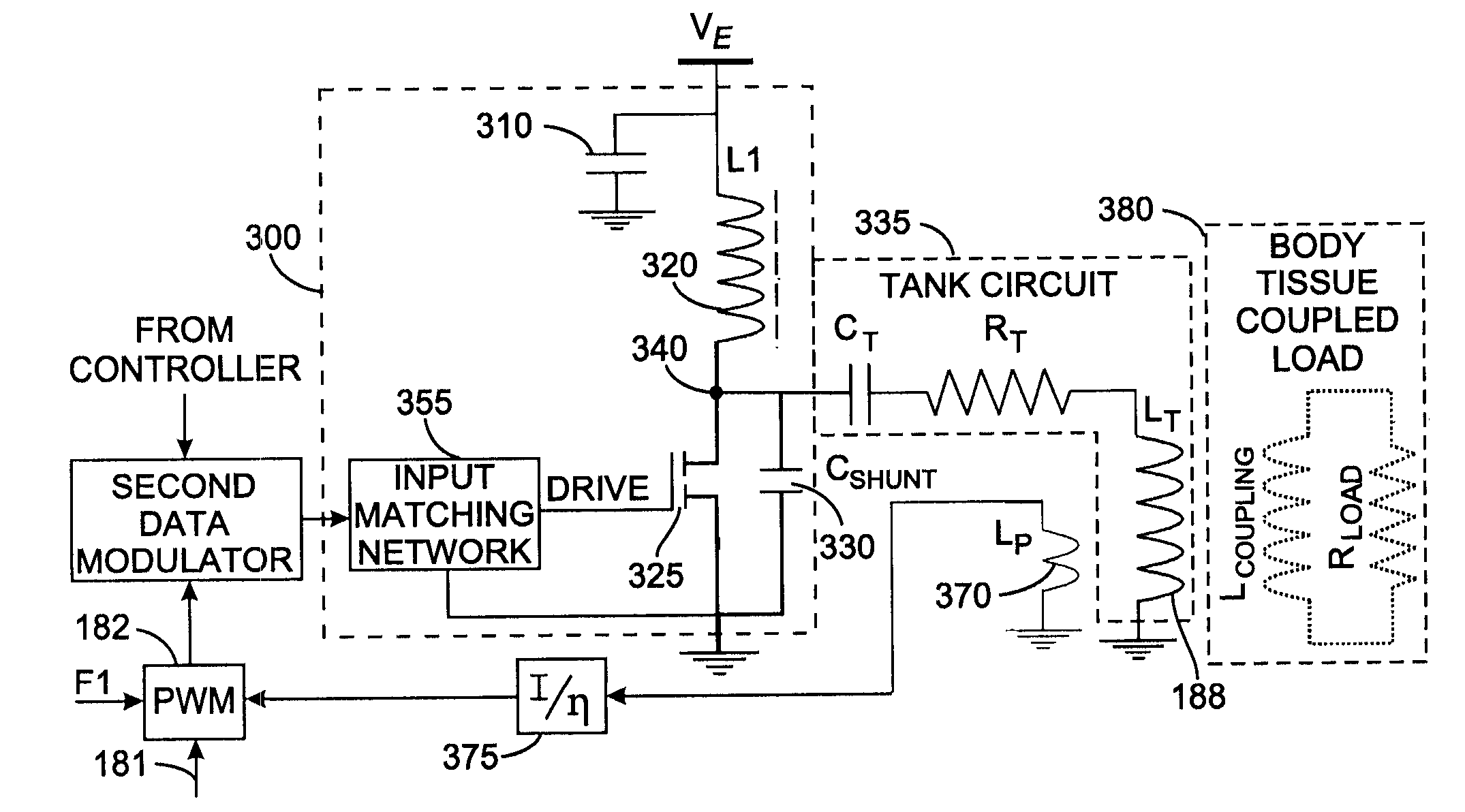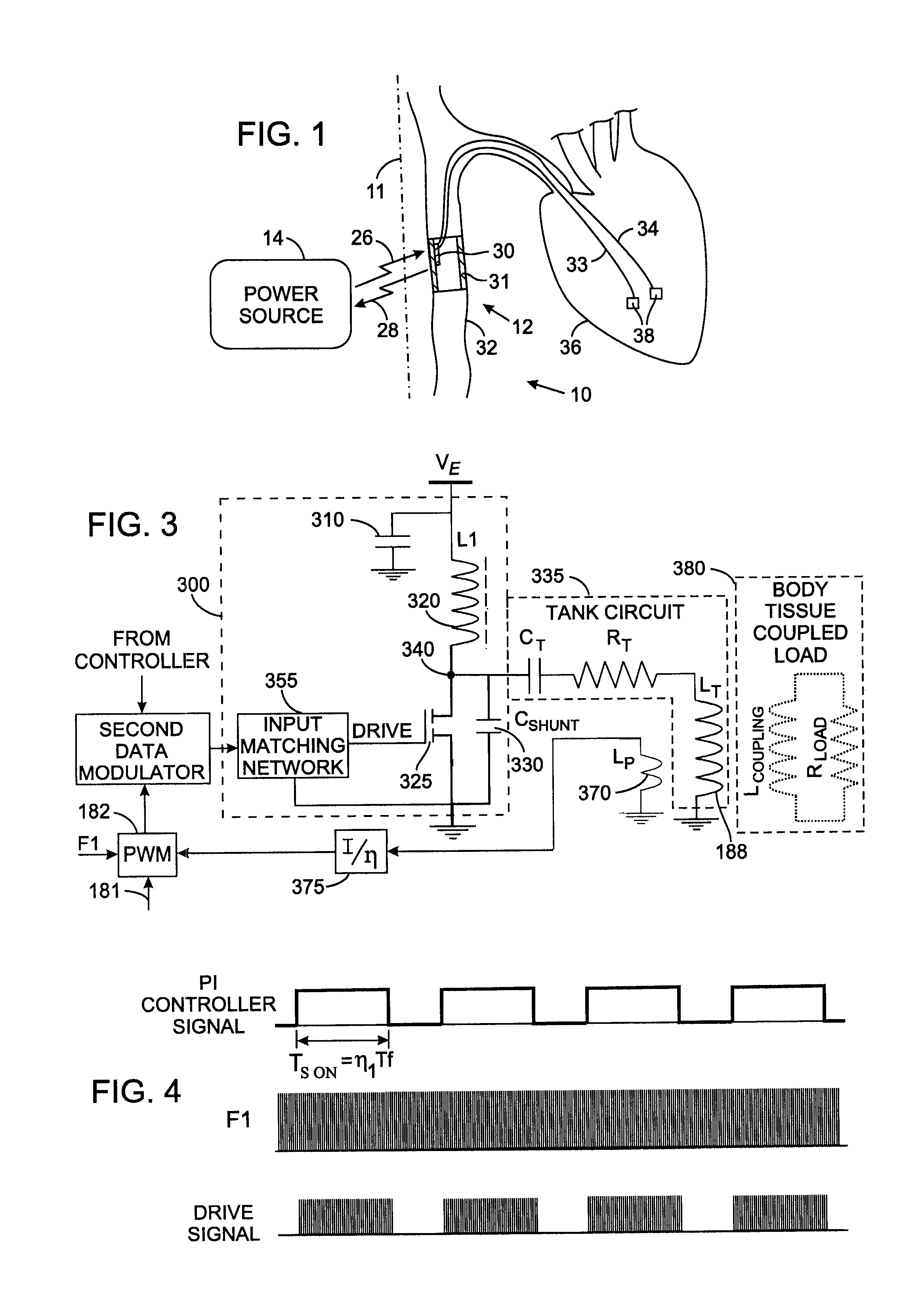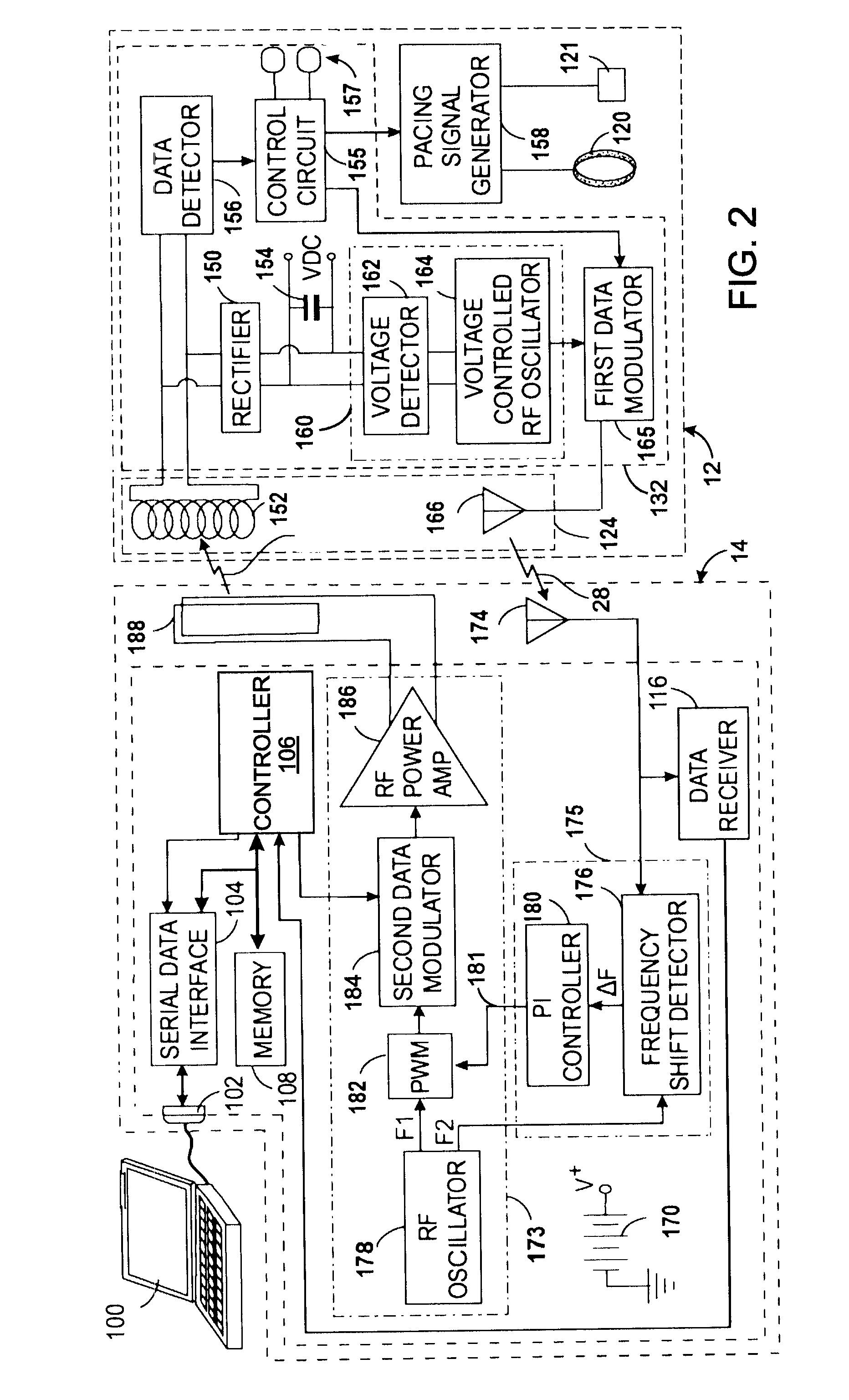Class-E radio frequency power amplifier with feedback control
a technology of radio frequency power amplifier and feedback control, which is applied in the direction of dc amplifiers with modulator-demodulator, amplifiers with semiconductor devices/discharge tubes, dc amplifiers with modulators, etc., can solve the problems of class-e amplifiers not reaching anywhere near the theoretical limits, amplifiers are not very efficient, and dissipate a significant amount of energy
- Summary
- Abstract
- Description
- Claims
- Application Information
AI Technical Summary
Benefits of technology
Problems solved by technology
Method used
Image
Examples
Embodiment Construction
[0018]Although the present Class-E power amplifier with feedback control is described with respect to an intravascular implanted device, it should be understood that the power amplifier is applicable for a number of medical and non-medical applications. Such other applications include, but are not limited to, medical imaging power amplifiers, such as are used for MRI radio frequency power amplification, implants (e.g. intravascular amplifiers, cochlear), high voltage amplifiers and in general, wherever a highly efficient, practical signal power amplification is required with a feedback control.
[0019]With initial reference to FIG. 1, a wireless transvascular platform 10 for tissue stimulation includes an extracorporeal power source 14 and a medical device 12 implanted inside the body 11 of an animal. The extracorporeal power source 14 includes a battery that powers a transmitter that sends a first radio frequency (RF) signal 26 to the medical device 12. The medical device 12 derives ...
PUM
 Login to View More
Login to View More Abstract
Description
Claims
Application Information
 Login to View More
Login to View More - R&D
- Intellectual Property
- Life Sciences
- Materials
- Tech Scout
- Unparalleled Data Quality
- Higher Quality Content
- 60% Fewer Hallucinations
Browse by: Latest US Patents, China's latest patents, Technical Efficacy Thesaurus, Application Domain, Technology Topic, Popular Technical Reports.
© 2025 PatSnap. All rights reserved.Legal|Privacy policy|Modern Slavery Act Transparency Statement|Sitemap|About US| Contact US: help@patsnap.com



